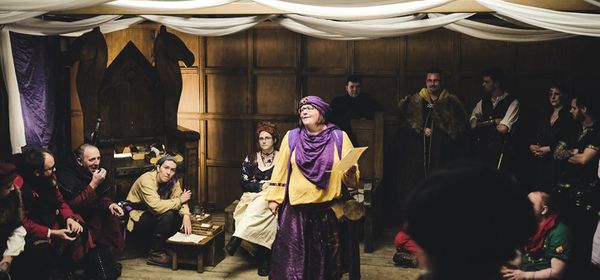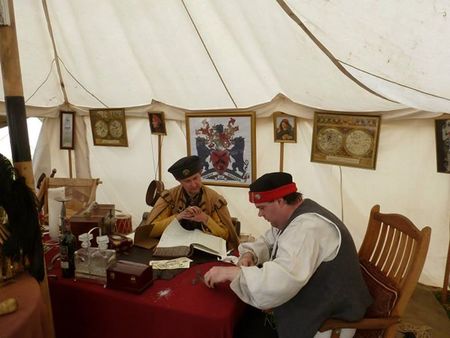Imperial Bourse
Overview
The Imperial Bourse is the economic hub of the Empire. Its role is to ensure the prosperity of the Empire and to provide access to much needed resources to those who can afford them.
Role within the Empire
The Bourse is intended to raise money for the Imperial treasury and ensure that ilium, mithril, weirwood and white granite are directed to where they can provide the most economic benefit, rather than being assigned by political or military patronage. Merchants bid for Imperial positions on the Bourse and those that are successful gain control of one of the Bourse positions and the production that comes with it. It is then left to them to sell these resources at whatever price they can. Although there are frequent accusations of profiteering, when the market functions as intended it ensures that significant sums of money are paid through the Bourse into the Imperial treasury for use by the Empire.
In addition to the auction of Imperial Bourse positions there are a number of national positions which are voted on by key members of each nation. The expectation is that the citizens that are elected to control these bourse positions will use the resources they generate for the benefit of their nation.
The Bourse often attracts a great deal of opprobrium, some aimed at the alleged greed of title holders, some at the perceived dysfunction of the arrangements. Despite this, or perhaps because of it, the Bourse is constitutionally protected from interference by the Imperial Synod.
History
The Bourse was founded by Emperor Giovanni after the Empire was formed, as part of a sequence of crucial economic reforms that included the introduction of a single Imperial currency. Mithril, weirwood, white granite and ilium are essential to the prosperity of the Empire and its citizens, but significant deposits of these materials are rare and jealously guarded. Giovanni's reforms intention put control of these resources in the hands of merchants and traders, rather than politicians or generals. In this way he hoped to maximise the benefits for the Empire, by providing large sums of money for the Imperial treasury and ensuring that resources went to the highest bidder.
Giovanni was emphatic that if the Bourse was to provide for the Empire then it would need cast-iron protection from "goodly-hearted priests and high-minded politicians". Thus it was explicitly designed to keep control of these precious materials out of the direct control of both the Throne and the Senate as well as ensuring that members of the Bourse could not be revoked by the Synod.
Over time the role of the Bourse has grown, its members instituted a private auction to give them access to some of the most valuable items in the Empire. This was so successful it was eventually copied and a second public auction was introduced to allow citizens of the Empire to sell basic goods at the Bourse. The private auction has suffered in recent years for various reasons and lapsed towards the end of 380YE.
Sessions
Of the five houses of Imperial government, the Bourse is unique in that it has no means to vote on matters. Because of this there are no formal sessions where members meet to discuss business. According to the historical records, this is absolutely by design - Emperor Giovanni was adamant that it was not in the interests of the Empire that members of the Bourse should meet and settle arrangements between them. The Bourse is intended to pit members against each other for the benefit of the Empire, not to encourage cooperation.
Despite this there have been informal meetings of Bourse seat holders have been arranged at different periods during the Empire's history. Some of these meetings have been one-off affairs to address specific issues, at other times members have arranged regular meetings to hold votes or issue announcements. However these periods of cooperation have rarely lasted long, usually only as long as the interests members have aligned.
Participation
Although there are no formal sessions of the Imperial Bourse - the Auction of the Seats is run by the Bourse at each summit. During the auction, all vacant Imperial Bourse titles are sold to the highest bidder by an Agent of the Bourse, usually the Imperial Auctioneer. The Auction is scheduled for Saturday afternoon, and usually begins at 2pm in the Senate building. Titles are settled using open ascending price auction. Any Imperial citizen with the money to invest is able to participate in the auction, but the winner must pay the winning bid immediately when the auction concludes, otherwise the title is offered to the next highest bidder. The winning bidder does not need to take the title themselves, it is acceptable for a citizen to employ a proxy to bid on their behalf.
In addition to the Auction of the Seats, citizens who own appropriate resources are entitled to vote for any national Bourse positions that are vacant at that summit. Voting opens on Saturday morning of the summit and concludes shortly after the public auction is complete.

